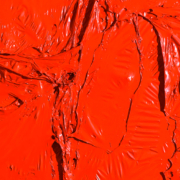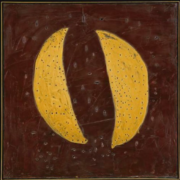Interview with prof. Neri
Historical period 1970-2020, 50 years of the group as instrument in psychiatry, psychotherapy and psychoanalysis
Interview with Bob Hinshelwood
Read more
The history of group psychoanalysis in France and the methodological problem of the ‘setting’
Interview with Denis Mellier
Read more
Group Body
Meeting with Simonetta Bruni
Homogeneous Groups Yesterday and Today
Round Table with Argo Members
Read more
Experiential Group
Interview with Cono Aldo Barnà
Read more
Group analytical seminar
Interview with Paolo Boccara
Read more
On the concept of fusion
Interview with Giovanni Meterangelis Read more
Psychoanalysis of Multifamily Groups
Interview with Andrea Narracci
Read more
The group in care communities
Interview with Livio Comin
Read more
Interview with Corrado Pontalti
edited by Nadia Fina
Balint Group: tradition and transformations of group work
Interview with Mario Perini
the first 50 years in Milan of therapy in analytically oriented groups
Dialogue between Silvia Corbella and Alberto Lampignano
Balint Groups
Teresa Gerace interviews Piera Ferrini Read more
Experiential Group with object mediator
Interview with Lilli Romeo Read more
The experiential group between training and change
Interview with Vincenzo De Blasi
Read more
Group and Gruppality of the Adolescent Mind
Read more
The homogeneous group in the treatment of eating disorders
Interview with Flaminia Cordeschi
Read more
Group Liaison Function
Interview with Stefano Carrara
Read more
Kairos, Psychic creativity Musical creativity
Introduction to dialogue
Having unexpectedly to edit a new issue of Funzione Gamma, inherent in music and in music by correlating with the psychoanalytic point of view, I was found myself, not being an expert in the field, to make use of various memories and some predilections, such as the one for Mozart’s works.
In the recent conference “In Music, between Adolescence and Psychoanalysis”, organized by the ARPAD Association of which you are President, last October at the Salesian University, dedicated to temporality and music in the era of adolesc Read more
Interview with André FERTIER
musician composer, music therapist, expert in cultural accessibility, artistic and inclusive cultural policy. Music therapy researcher for people with autism, cerebrospinal handicap, people in comas, and Alzheimer’s patients. Composer of stage music, World music and songwriter performing pop/rock songs; creator of functional sound spaces. Read more
Biopsychosocial approach to pain
Abstract
The Author deals with the issue of subjective pain and correlates it with several factors, investigated by the biopsychosocial model according to various perspectives that interact with each other. Read more
Interview with Marco Fierro
edited by Adelina Detcheva
Question: The first question concerns osteopathy seen a little more closely. What is it about?
Answer: Osteopathy is a mainly manual technique that tries to find a balance in the person. A balance both from a mechanical point of view but also from a physiological point of view. Having said this, it acts both on the most bony, joint and muscular tissues but also on tissues such as fascia, visceral organs, or even more deeply at the level of the head, skull and sacrum. So there are techniques that concern the musculoskeletal system, techniques that concern the visceral system and techniques that concern what we call the craniosacral system. All this, done with mobilizations or in some cases always very targeted manipulations that go on a segment and only after having done very specific tests on all systems that can act on the problem highlighted during the anamnesis. So these techniques, which are always manual, are used to find or create a new specific balance for each person. That is, each of us has his own balance, his own status where he is more comfor Read more
Interview with Maurizio Koch
by Adelina Detcheva
Question: Well, I would be very curious to have some information regarding your choice of field and the profession of physician and gastroenterologist in particular.
Answer: So, the story begins like this: I was fascinated by our family doctor who lived in via del Governo Vecchio 67. We were then in via Zanardelli. We were a family with 9 children, so this friend of my parents came to visit us regularly. Or we went to his study: there was this famous pediatric bed, with the underlying parquet corroded by the pee of the children he visited and during the visit the children regularly peed on the floor every time. He was a real gentleman, he accompanied towards adolescence. Then there was another very elegant thing: he rode with the driver in a vintage Lancia and I really liked this thing then. He made home visits without any problems. He was a very friendly gentleman with my parents, they were family friends. Then at the end of the year, he made a kind of note for all the visits made to the different children and the Read more
Could psychoanalysis be considered a science? Interview with R.D. Hinshelwood: Part Two
Question. Dr. Hinshelwood first of all, after several weeks, how did you find the reply of the Conference happened in Rome on the 3rd and 4th of October, to the theme of your book “Research on the Couch”? And what do you think about the reading given by the Italian psychoanalysts who were present at the Conference?
R.D. Hinshelwood. This is a difficult question because it is so much more difficult to reflect on presentations at a conference – and especially when my work is the focus of interest. I have various feelings of satisfaction and annoyance, all of which interfere with my ability to fully respond to what is said at the time (and until I see it on paper), and indeed I then remember it in a biased way. So I think first of all, I cannot give a detailed response and analysis of what was said. I have only general impressions, and they cannot be very reliable.
Read more
Could psychoanalysis be considered a science? Interview with R.D. Hinshelwood: Part One
Question. Dr. Hinshelwood, your coming in Rome the next 3rd and 4th of October, will open a debate around a question nowadays always more important for the psychoanalytical field: Could psychoanalysis be considered a science?
In your book, “Research on the Couch: Single Case Studies, Subjectivity and Psychoanalytic Knowledge” (Routledge, 2013), you point to that Freudian attempt that lasts from more than a century and has its only decisive key in the clinical practice.
What is the reason why you moved your interest to develop a discourse on the features of the psychoanalytical research?
R.D. Hinshelwood. Well, perhaps I was always interested in human minds, and what we can know about each other, and about the mind in general. But, during clinical training from about 1970 onwards, it was the practice of psychoanalysis which dominated my interest. I was also working in the public service, in psychiatry, and interested in how psychoanalytic ideas could contribute to improving the life of the most seriously disabled psychiatric patients.
Read more
The group treatment of drug users with mediating object: the application of Photolangage
Interview with Claudine Vacheret
by Giorgia Morgese
Question. Professor Vacheret, what do you think about the treatment of drug users? What therapy is more appropriate, a group therapy or an individual one?
Claudine Vacheret. It is clear with drug users that a group therapy is better as they tend to have big difficulties with mental thinking. They prefer to act rather than mental thinking. Since they cannot speak about their own feelings and affects then we have to organise a setting with a mediation to help them. In this way, they speak about Read more
Psychoanalysis in the Era of Cyberspace. Interview with Glen O. Gabbard
Question. Dr. Gabbard, after several years you came back to Rome to discuss a paper about “The privacy, the Self, and the practice of psychoanalysis in the era of Internet”(1). A new frontier on which it is necessary stay and reflect if psychoanalysis wants to keep in touch with new diseases of the modern age.
How long did you take interest on this theme? What made you want to treat it?
Glen O. Gabbard. I could not avoid it. The world has changed. The practice of analysis and therapy has changed. Patients expect to email or text their analyst or therapist. My patients were texting me with a request for an appointment change. They were Googling me before the first appointment so they could find out more about me. Read more
Bodies Under Siege. Interview to Armando R. Favazza
Question. Dr Favazza, in May 2011 the Johns Hopkins University Press has published the 3rd edition of “Bodies Under Siege: Self-Mutilation, Nonsuicidal Self-Injury, and Body Modification in Culture and Psychiatry”, that since 1987 it is regarded as the most important work on self-injurious behaviours and body modification practices, explored in their complexity by cultural and clinical perspectives, paying attention to the relationship with the contemporary context.
Could you explain why many years ago, you took interest in self mutilation and decided to dedicate yourself to the research on its meaning?
Armando R. Favazza. I was fortunate to study under the famous anthropologist, Margaret Mead, and so my professional identity is that of a cultural psychiatrist who is interested in the interface between clinical psychiatry and cultural anthropology. In the late 1970s, at the beginning of my career, I mainly wrote a series of articles in an Read more



